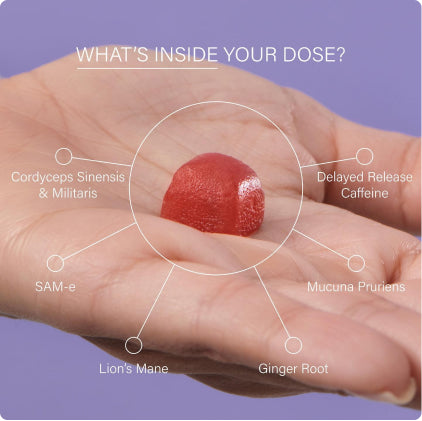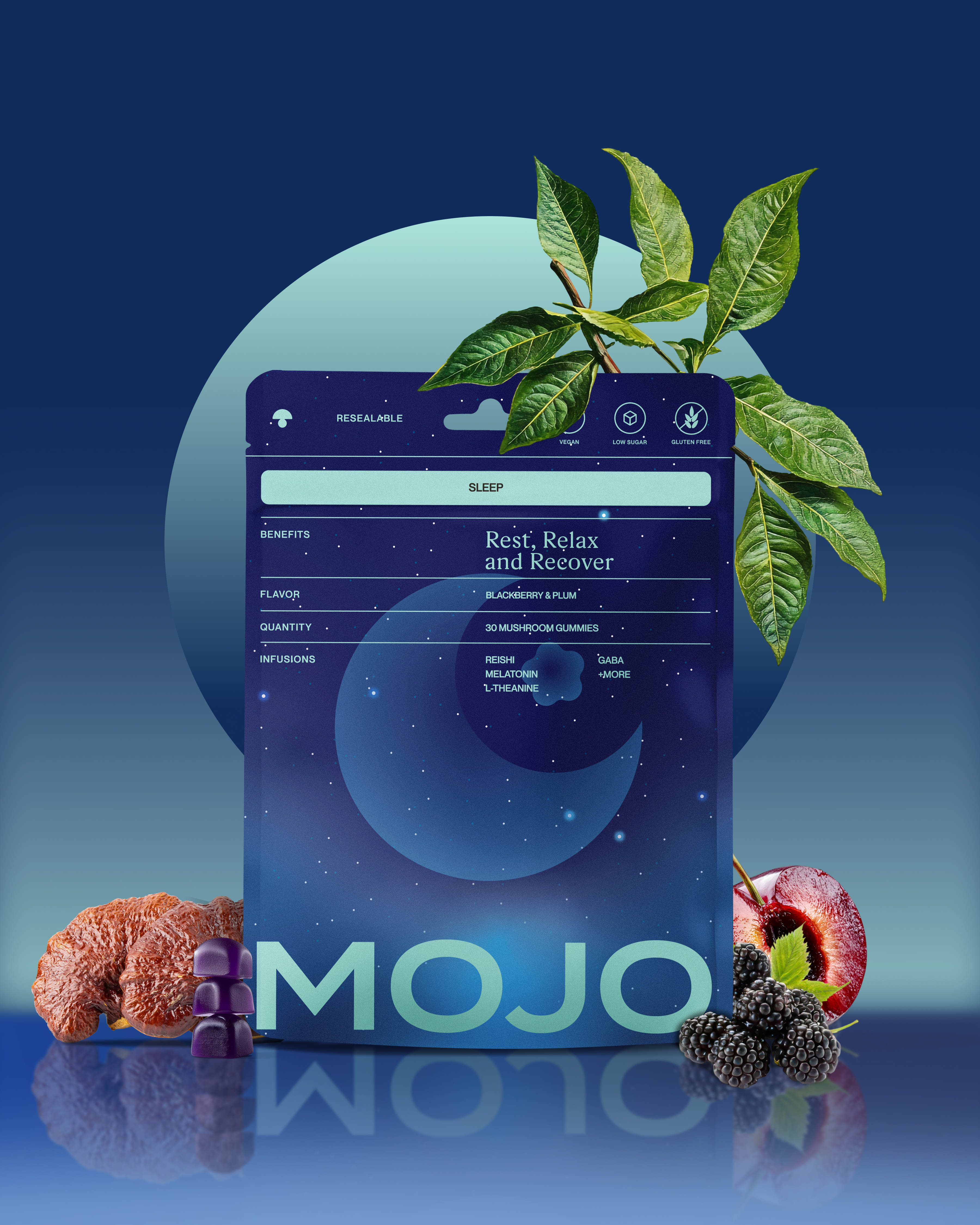These mushrooms aren't precisely a cup of coffee, but they could help you stay up longer.
One of the most versatile meals out there, mushrooms provide a natural source of long-lasting, sustained energy. The term "energy" may refer to a wide range of concepts, including the metabolic energy we obtain from food, emotions of mental clarity, satisfaction, and focus, as well as athletic endurance and stamina.
Functional Food
A food is referred to as "functional food" if it is not only nutritious to consume but also has potential therapeutic benefits. This article will discuss the benefits of eating mushrooms for energy, including how these medicinal fungus affect our energy levels, their nutritional worth, and their effects on the brain.
The instant high you could get from a cup of coffee or an energy drink is not what you receive with mushrooms. The best comparison for the energy they supply is between marathon and sprint energy. Many of us reach for a cup of coffee as soon as we wake up in the morning to make us feel more alert.
Usually, there is a sudden burst of energy that swiftly peaks and then soon fades away. This may force us to consume many cups of coffee throughout the day or force us to go for a sugar spike in the afternoon, which will inevitably result in a crash at the end of the day. As we'll see, mushrooms offer a consistent supply of energy all day long.
Are Mushrooms a Source of Energy?
The majority of the energy our bodies require to fuel our days comes from nutrition found in the food we eat. The sorts of energy we may need can vary greatly depending on our activity, what we need to achieve, the time of day, or whatever mischief we may have engaged in the previous evening.
Mushrooms are regarded as a high-protein meal and are a good source of complex carbs (varies according to species). These more complex carbs release energy steadily over time because they take longer to break down than simple sugars.
Their high polysaccharide content works as an anti-fatigue agent. A lot of mushrooms are also a rich source of vitamin B12, which supports our systems' ability to turn food into energy by converting glucose.
Some of the adaptogenic properties present in mushrooms are provided by beta-glucans, a form of polymer found in fungus cell walls. According to research, this adaptogenic effect—a general phrase coined by scientist N. V. Lazarev in the 1940s while researching medicinal herbs—restores the body's equilibrium following stress. This might help us in a variety of ways, including by enhancing our immunity, lessening weariness, and speeding up recuperation.
Their additional effect of reducing inflammation over time aids in stress reduction and prevents fatigue. Recent investigations, largely carried out in animals, and early trials suggest that some adaptogenic mushrooms, such as lion's mane, may also activate neural growth factor (NGF). This mushroom is frequently used by people to increase mental clarity, improve attention, and lessen mental weariness.
However, it's also crucial to note a limitation of laboratory research: According to certain data, only one-third to one-half of animal studies are effectively translated to human trials. Therefore, there is still much to learn about the therapeutic potential of many mushrooms from a scientific perspective. Fungi are absolutely good to eat, provided you don't choose a toxic one, and have been utilised as remedies for hundreds of years by many different civilizations.
Information to Consider Before Using Mushrooms for Energy
Prior to beginning your search for active mushroom varieties, take into account synergy. The term "synergy," which is widely used in herbalism, describes the symphony of effects that result from the combined usage of many plants or mushrooms. So, even though you might be looking for a certain mushroom's benefits, taking several mushrooms at once might increase their potency.
They add up to more than just the individual mushrooms do. Therefore, you might want to think about formulae or mixes that comprise a variety of mushroom species rather than purchasing an isolated extract or a single type of mushroom. Together, they'll put forth more effort and be more productive.
The ideal way to routinely consume mushrooms is something else you might want to think about. While the human body may immediately utilise the energy in food, it may take some time to benefit from the therapeutic qualities of mushrooms.
The process of obtaining energy from mushrooms calls for constancy over a period of many weeks to several months. It is comparable to adding logs to a fire to keep it glowing. Not everyone has the time or resources to buy fresh mushrooms and add them to their diet on a regular basis.
The good news is that mushrooms come in a variety of forms, making it rather simple to include them into your daily routine. To add flavour to coffee, tea, or any other beverage, for instance, use tinctures and powders. And one of the simplest methods to control dose and keep a schedule is using mushroom capsules.
Mushrooms to Eat for Energy
In a scientific review that was released in 2017, a group of academics under the direction of Dr. Ping Geng of the Hong Kong Polytechnic University investigated the anti-fatigue potential of medicinal mushrooms. They explained that the fungus have a variety of strategies for combating weariness.
Muscular system, antioxidant system, cardiovascular system, hormonal system, and immunological system are five primary systems in the body that are targets for the stimulating effects of mushrooms. The depletion of glycogen reserves in the liver and muscles is a major cause of muscular tiredness. Lactic acid builds up in the muscles when they lose energy. That is the burn you get while working out. Mushrooms lower blood lactic acid and boost liver and muscle glycogen stores.
By activating enzymes and reducing the harmful effects of free radicals and environmental stresses, mushrooms improve the body's antioxidant system. Regarding the immunological and hormonal systems, mushrooms boost the production of cytokines (small proteins that cause an immune response) and the expression of immune cells.
They also stabilise testosterone levels to provide users a long-lasting energy boost. Additionally, mushrooms improve blood flow and the control of blood sugar. Overall, mushrooms help our bodies' systems work properly to preserve equilibrium, battle exhaustion, and make us feel invigorated for extended periods of time.
Cordyceps
According to research, cordyceps may have advantages for the heart and respiratory system, which might raise energy levels and improve aerobic capacity. In order to achieve this, cordyceps boost blood flow to the brain, limbs, and organs while protecting the heart from strain.
Additionally, cordyceps improves recovery from exhaustion while boosting stamina and endurance through improved oxygen utilisation efficiency. A team of female athletes achieved nine world records in 1993 in the Chinese National Games, and they credited frequent cordyceps use for their accomplishments. In another study, healthy older individuals who took a 12-week course of a cordyceps formula performed better during exercise.
Chaga
Recently, chaga has gained popularity; you might have noticed chaga lattes and chaga teas on the menu at your neighbourhood coffee shop. Although it has gained popularity as a coffee alternative, it is caffeine-free.
According to preliminary studies, chaga increases the absorption of glucose into cells, maximising the body's energy pathways. In animal experiments, chaga enhanced endurance and boosted energy storage in the liver and muscles of mice. It also has some of the highest quantities of antioxidants known in any mushroom.
Reishi
As a worldwide wellness tonic to boost vitality, longevity, and energy, reishi, often known as the "mushroom of immortality," has been utilised for ages in Asian civilizations. Reishi has a wide range of medicinal possibilities, including the ability to boost energy, according to early research.
By boosting antioxidant enzyme activity, reishi provides protective benefits against oxidative damage from strenuous exercise. According to a 2018 study, it may be especially helpful for lowering mental tiredness since it is neuroprotective and may promote the regeneration of brain cells.
The same review emphasises that triterpenes, which are organic chemical molecules, are abundant in reishi and contribute to its powerful anti-inflammatory capabilities, which reduce the negative effects of stress on our bodies. Additionally, it promotes rest and lessens weariness.
Shiitake
The bioactive substance lentinan and other polysaccharides found in shiitake have a variety of medicinal possibilities, including anti-fatigue properties. Shiitake mushrooms have particularly noteworthy antioxidant properties.
Shitake may shield tissues from oxidative damage brought on by exercise by its potent capacity to scavenge free radicals and improve antioxidative enzyme activity, according to studies, which would lessen physical exhaustion.
Lions Mane
Not only is lion's mane adaptogenic, but it is also a well-known natural nootropic. According to findings from animal research, lion's mane may help human bodies better metabolise energy, boost their capacity to adapt to activity, and postpone physical exhaustion. By improving the liver's and muscles' ability to store glycogen, this may lessen the effects of physical exhaustion.
According to other research, lion's mane contains bioactive substances such phenols, flavonoids, and ascorbic acids that support the brain systems necessary for learning, memory, and mood as well as improve cognition in aged rats.
The brain and spinal cord—the central nervous system—are the focus of lion's mane. Additionally, it lowers inflammation and boosts blood flow to the central nervous system, which helps us concentrate and think more clearly.
Table of contents









